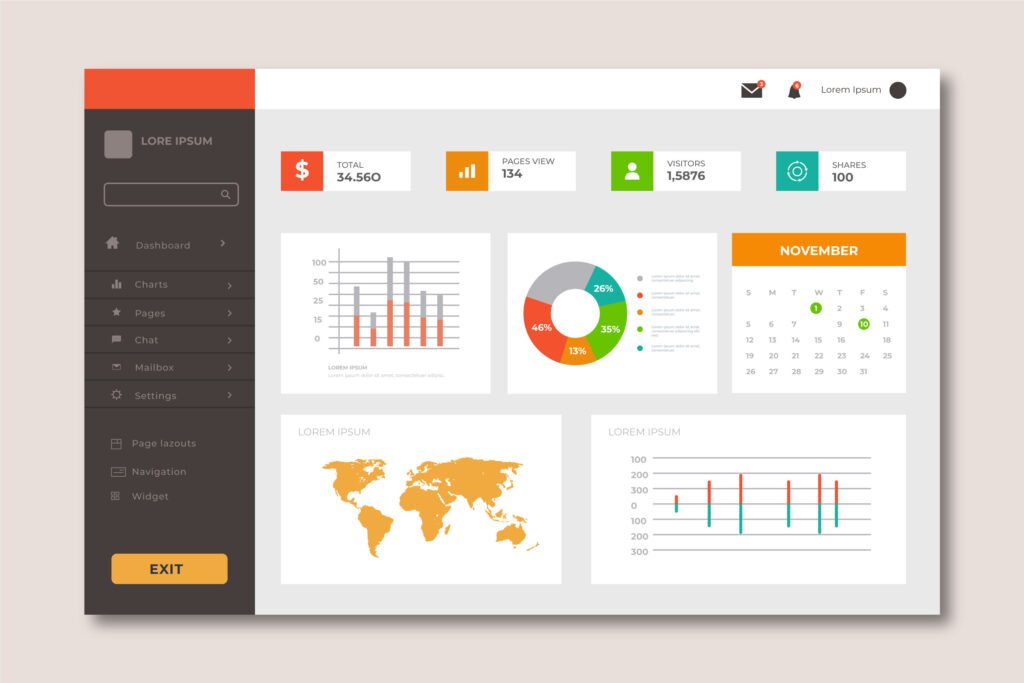In today’s rapidly evolving technological landscape, where new programming languages and frameworks emerge frequently, one may wonder if C programming still holds relevance. Despite the rise of modern languages, C continues to maintain its significance in the world of technology. Known for its efficiency, control, and low-level capabilities, C programming remains a powerful tool for various applications. So, let’s delve into the question: Is C programming still relevant in the modern tech landscape?
Table of Contents

Introduction
C programming is a foundational programming language that has played a significant role in the development of modern computing systems. Created in the early 1970s by Dennis Ritchie, C programming quickly gained popularity due to its simplicity, efficiency, and versatility. Over the years, numerous programming languages have emerged, each with its own set of advantages and use cases. However, the question remains: Is C programming still used in today’s technological landscape? In this blog, we will explore the relevance of C programming, its applications across different industries, the challenges it poses, and its place in the modern era.
The Popularity of C Programming
Despite the emergence of newer programming languages, C programming continues to maintain its popularity. One of the main reasons for its enduring appeal is its use in system-level programming. C allows direct access to computer hardware and memory, making it suitable for writing operating systems, device drivers, and firmware. Additionally, C programs often exhibit superior efficiency and speed compared to higher-level languages due to their proximity to the hardware.
Is C Programming Still Relevant in the Modern Tech Landscape?
C programming finds extensive application in various domains and industries. In operating systems development, C is widely used to build kernels, file systems, and low-level utilities. Embedded systems and Internet of Things (IoT) devices heavily rely on C due to its ability to interact with hardware components effectively. Game development also benefits from C programming, as it provides control over resource utilization and performance optimization. Moreover, C is the language of choice for creating compilers and interpreters, allowing the development of new programming languages or extending existing ones. Lastly, C is utilized in financial applications where high performance and low-level control are crucial.
The Relevance of C Programming Language
Despite being one of the oldest programming languages, C programming language is still widely used in various fields. Let’s take a look at some of the reasons why C is still relevant:
Operating Systems
Operating systems are the backbone of any computer system. C programming language is widely used for developing operating systems due to its low-level memory manipulation capabilities. Unix and Linux, two of the most widely used operating systems, are written in C programming language.
Embedded Systems
Embedded systems are computer systems that are integrated into other devices or machines. These systems are used in various industries, including automotive, healthcare, and aerospace. C programming language is widely used for developing embedded systems due to its low-level memory manipulation capabilities and efficient use of resources.
Game Development
C programming language is widely used in game development due to its speed and efficiency. Many popular games, such as Minecraft and World of Warcraft, are written in C programming language.
High-Performance Computing
High-performance computing involves using large-scale computing resources to solve complex problems. C programming language is widely used in high-performance computing due to its efficient memory management and low-level manipulation capabilities.
Legacy Codebases
Many large organizations still rely on legacy codebases that are written in C programming language. These codebases may be too expensive or time-consuming to rewrite in a newer programming language, making C programming language still relevant in these situations.
C Programming in the Modern Era
In today’s rapidly evolving technological landscape, where new programming languages and frameworks emerge frequently, one might wonder about the relevance of C programming. Despite the proliferation of modern languages, C continues to hold its ground and remains a vital tool for various applications. Let’s explore how C programming fits into the modern era and the reasons why it still plays a crucial role in software development.
Integration with Other Languages
One of the key factors that contribute to the longevity of C programming is its seamless integration with other languages. Many modern programming languages, such as C++, Objective-C, and Rust, have direct compatibility with C. This compatibility allows developers to leverage existing C code libraries, extend functionality, and improve performance. Furthermore, C’s compatibility with assembly language makes it an excellent choice for low-level programming, enabling developers to optimize critical sections of code for specific hardware platforms.
Frameworks and Libraries Supporting C
Although C is considered a low-level programming language, numerous frameworks and libraries have been developed to enhance its functionality and ease the development process. These frameworks and libraries provide higher-level abstractions and additional features that simplify complex tasks. For instance, GTK+ and Qt are popular graphical user interface (GUI) frameworks for C, making it easier to develop visually appealing and interactive applications. Similarly, libraries like OpenSSL and libxml2 extend C’s capabilities in cryptography and XML processing, respectively.
C’s Role in Open-Source Software
Open-source software has revolutionized the software development community, and C programming has been a fundamental component of this movement. Many open-source projects and operating systems are written in C, offering transparency, flexibility, and community-driven development. The Linux kernel, for example, is predominantly written in C, and its success has propelled the use of C in systems programming. Open-source projects also provide a rich ecosystem of libraries and tools, enabling developers to leverage existing solutions and collaborate with like-minded individuals.
Career Opportunities for C Programmers
Proficiency in C programming opens up a plethora of career opportunities, particularly in domains where performance, efficiency, and low-level control are essential. Industries such as embedded systems, robotics, real-time systems, and game development heavily rely on C programming. The demand for skilled C programmers remains high, as companies seek professionals capable of optimizing code, ensuring system reliability, and squeezing maximum performance out of hardware resources.
Job Prospects in Relevant Industries
The relevance of C programming is evident in the job market, with a wide range of companies actively seeking C programmers. Technology giants, automotive manufacturers, aerospace companies, and research institutions often have positions specifically dedicated to C programming. These organizations require talented individuals who can tackle complex challenges, develop efficient algorithms, and contribute to the creation of cutting-edge products.
Salary and Growth Potential
Given the specialized nature of C programming, professionals with expertise in this language tend to command competitive salaries. The demand for skilled C programmers often outpaces the supply, leading to lucrative career opportunities. Additionally, by building a strong foundation in C programming, individuals can expand their skill set and explore related languages like C++ or delve into fields such as embedded systems, firmware development, or operating systems.

Career Opportunities for C Programmers
Proficiency in C programming opens up a wide range of exciting career opportunities for individuals with a strong grasp of this language. Despite the emergence of newer programming languages, there is a continued demand for skilled C programmers in various industries. Let’s explore some of the career prospects that await those who master C programming.
Embedded Systems Development
One of the most prominent domains where C programming expertise is highly valued is embedded systems development. Embedded systems are everywhere around us, from smartphones and home appliances to automotive systems and medical devices. C programming allows developers to have low-level control over hardware and optimize performance in resource-constrained environments. By becoming proficient in C, you can contribute to the development of cutting-edge embedded systems that power our modern world.
Operating Systems and Firmware
Operating systems are the backbone of any computing device, and many of them are written in C or heavily rely on C code. By diving into C programming, you can enter the realm of operating system development, where you’ll work on tasks such as kernel development, device drivers, and system-level optimizations. Similarly, firmware development for devices like routers, IoT devices, and embedded controllers often requires expertise in C programming. These areas offer challenging and rewarding career paths for C programmers.
Game Developer
C programming is widely used in the game development industry, making it an appealing career path for those passionate about both programming and gaming. Many game engines, such as Unity and Unreal Engine, provide C APIs that allow developers to extend the engine’s functionality and create custom gameplay features. Additionally, game engines often rely on C to achieve the performance required for immersive gaming experiences. By mastering C programming, you can contribute to the creation of engaging and visually stunning games.
Compilers and Interpreters
The field of compilers and interpreters relies heavily on C programming expertise. Compilers are responsible for translating high-level programming languages into machine code, while interpreters execute code directly. Language designers and compiler developers often use C to implement language-specific features and optimize the performance of their compilers or interpreters. Working on compilers and interpreters offers a unique and intellectually stimulating career path for C programmers interested in language design and implementation.
High-Performance Computing and Scientific Applications
C programming is crucial in the realm of high-performance computing and scientific applications. Researchers, scientists, and engineers often require efficient and optimized code to perform complex calculations, simulations, and data analysis. By leveraging the power of C programming, you can contribute to projects related to computational physics, bioinformatics, weather modeling, and many other scientific domains. This field offers opportunities to work on cutting-edge research projects and collaborate with experts from various disciplines.
Cybersecurity and Low-Level Software Development
With the increasing importance of cybersecurity, professionals skilled in low-level software development are in high demand. C programming provides the necessary tools and controls to build secure and robust software systems. Professionals specializing in security-focused software development, such as secure protocols, encryption algorithms, or vulnerability analysis, often rely on C programming to ensure the integrity and confidentiality of sensitive data. By choosing this career path, you can play a vital role in safeguarding information in our increasingly interconnected world.
Click here to earn online money without any investment
Challenges and Limitations of C Programming
While C programming remains a powerful language with numerous advantages, it also comes with its own set of challenges and limitations. It’s important for developers to be aware of these aspects in order to make informed decisions when choosing C as their programming language. Let’s explore some of the challenges and limitations of C programming.
Memory Management:
One of the fundamental challenges in C programming is manual memory management. Unlike higher-level languages that offer automatic memory management through garbage collection or other mechanisms, C requires developers to explicitly allocate and deallocate memory using functions like malloc() and free(). Improper memory management can lead to memory leaks or segmentation faults, making it crucial for developers to be diligent in managing memory resources.
Lack of Abstractions:
C is a low-level programming language that provides minimal abstractions compared to higher-level languages. While this gives developers fine-grained control over the hardware, it also means that certain tasks require more manual effort and can be more error-prone. For example, string manipulation in C requires manual memory allocation and careful handling to avoid buffer overflows. Developers need to be mindful of these limitations and take extra precautions when working with low-level constructs.
No Built-in Support for Object-Oriented Programming:
C is a procedural language and lacks built-in support for object-oriented programming (OOP) concepts like classes, inheritance, and polymorphism. While it is possible to implement OOP principles in C through manual coding techniques, it requires additional effort and can be less intuitive compared to languages designed specifically for OOP, such as C++ or Java. This limitation can make certain software design patterns and code organization techniques less straightforward in C.
Limited Standard Library:
The C standard library provides a set of basic functions and utilities, but its functionality is relatively limited compared to the standard libraries of other languages. Many higher-level operations, such as string manipulation, regular expressions, or data structures like lists and maps, are not available in the standard library and require external libraries or custom implementations. This can increase development time and complexity when working on projects that rely on advanced data structures or complex operations.
Security Vulnerabilities:
C programming’s low-level nature and direct access to memory can make programs more susceptible to security vulnerabilities, such as buffer overflows, format string vulnerabilities, and pointer-related issues. Developers need to exercise caution and adopt secure coding practices to mitigate these risks. Techniques like bounds checking, input validation, and proper memory handling are crucial to ensure the security and stability of C programs.
Platform Dependence:
C programming is platform-dependent, meaning that code written for one platform may not run as expected on another platform without modification. This can introduce challenges when developing cross-platform applications or when porting existing code to different operating systems or architectures. Developers need to consider platform-specific differences, such as byte ordering, data size, and system calls, to ensure the compatibility and portability of their C programs.
Despite these challenges and limitations, C programming remains a valuable tool in the hands of skilled developers. Understanding and mitigating these limitations, along with adopting best practices, can help harness the power of C while minimizing potential pitfalls. By embracing its strengths and addressing its challenges, developers can leverage the versatility and performance benefits that C programming offers.
Conclusion
In conclusion, C programming language is still relevant in today’s world. Despite being one of the oldest programming languages, it is widely used in various fields, including operating systems, embedded systems, game development, high-performance computing, and legacy codebases. Its efficiency, portability, and low-level memory manipulation capabilities make it an ideal choice for many applications.
FAQs
Can C programming language be used for web development?
While C programming language can be used for web development, it is not the most popular choice. Other programming languages, such as JavaScript and PHP, are more commonly used for web development.
Is C programming language difficult to learn?
C programming language is relatively simple and user-friendly, making it one of the most popular programming languages in the world. However, it does require some knowledge of computer science and programming concepts.
What are the advantages of using C programming language?
C programming language is known for its efficiency, portability, and low-level memory manipulation capabilities. It is widely used in various fields, including operating systems, embedded systems, game development, high-performance computing, and legacy codebases.
Is C Programming Still Used?
Yes, C programming language continues to be widely used and relevant in today’s world of programming. Its influence can be seen in modern languages, and it maintains its position in critical areas such as system programming, embedded systems, high-performance computing, and legacy codebases. Aspiring programmers and professionals can benefit greatly from learning C as it provides a solid foundation and opens doors to various opportunities in the technology industry.



